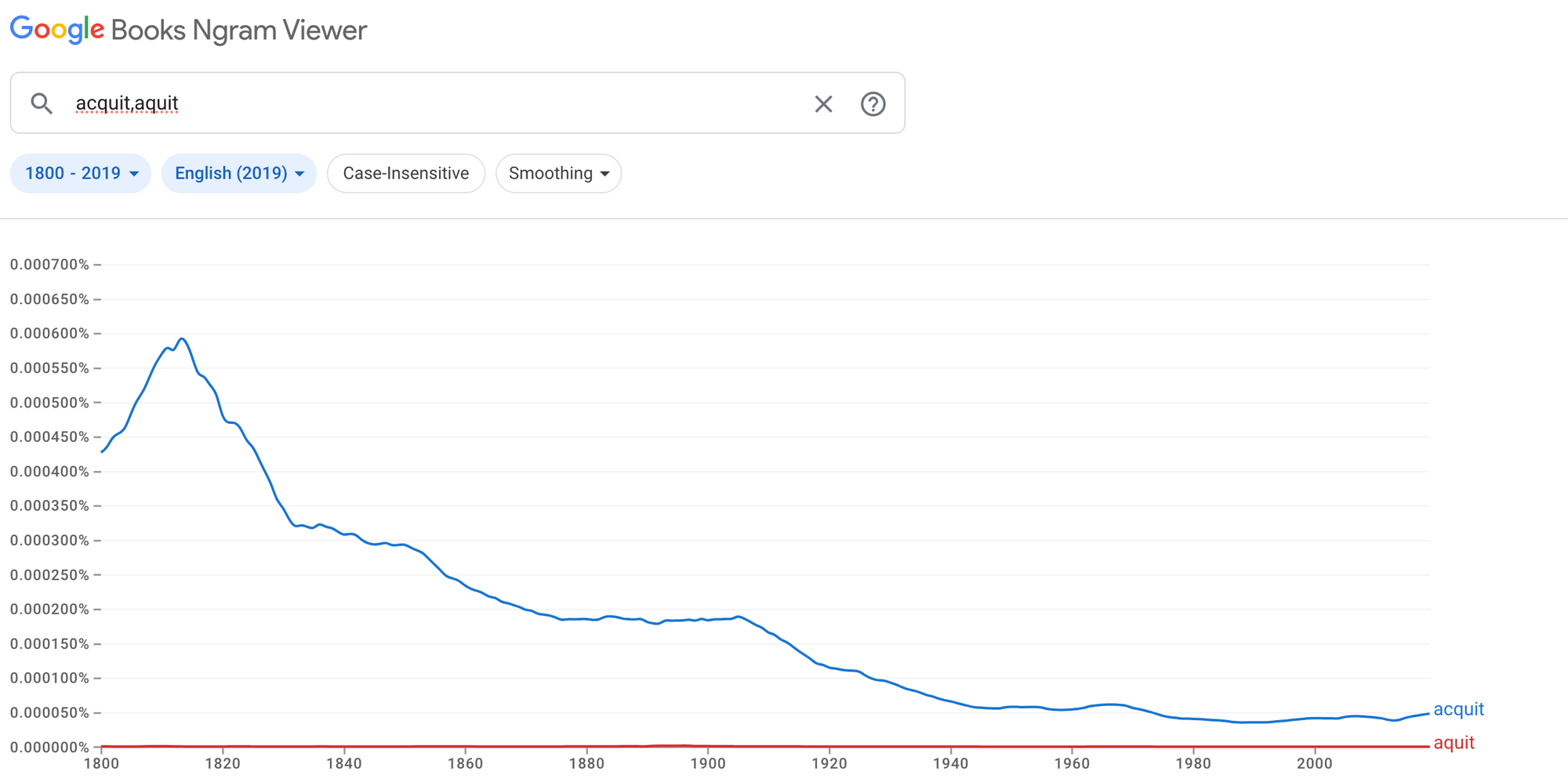"Aquit" is a misspelling of "acquit," which either means declaring someone is not guilty of a crime or conducting oneself in a certain way.
The different meanings of "acquit"
In general, the verb "acquit" means to discharge completely from an accusation, blame, or responsibility (such as debt). Below are the more specific definitions with examples.
To declare someone not guilty in a legal trial: In a court of law, when a jury or judge finds a defendant innocent of a crime, they acquit the defendant.
In a high-profile murder trial, the jury carefully reviewed the evidence and ultimately decided to acquit the defendant, concluding that there was not enough proof of guilt.
To absolve or exonerate someone from blame or responsibility: In a broader context, "acquit" can be used to mean clearing someone of any wrongdoing or blame.
After a thorough investigation, the internal review committee decided to acquit the employee, as they found no evidence of misconduct or negligence in the workplace incident.
To fulfill or satisfy an obligation or debt: In financial or contractual contexts, "acquit" can refer to settling a debt or obligation.
The company paid off the last installment of the loan, thereby acquitting its financial obligation to the lender.
To conduct oneself appropriately or skillfully: In some contexts, "acquit" is used to describe how someone carries themselves or handles a task.
Despite facing a challenging negotiation, the diplomat managed to acquit themselves admirably, preserving the peace talks.
To behave in a particular way or meet expectations: "Acquit" can also refer to how someone performs in a given role or situation.
The new employee was nervous about the presentation but managed to acquit themselves professionally and confidently in front of the clients.
Comparing "acquit" and the misspelling "aquit"

As shown in the Google Books Ngram Viewer graph above, the correctly spelled "acquit" is has been used throughout the last few centuries while the incorrect misspelling "aquit" has not been used.
The earliest known use of the verb "acquit" is in the Middle English period (1150—1500), specifically around 1225 in Ancrene Riwle, a written work that includes a medieval code of rules for religious women.
The root of "acquit" traces back to the Old French words "aquiter" and "acquitier," which mean to pay up or settle a claim.
Example sentences
- After a thorough trial, the jury decided to acquit the defendant, as there was not enough evidence to support the charges.
- The athlete always acquits himself with professionalism and sportsmanship, both on and off the field.
- The investigation's findings served to acquit the teacher of any wrongdoing in the classroom incident.
- With the final payment, John was able to acquit his outstanding loan and become debt-free.
- It was a relief when the audit results helped acquit the company from allegations of financial mismanagement.
- The company's commitment to sustainability initiatives helped them acquit their environmental responsibilities.
- Despite the challenging circumstances, she managed to acquit herself with grace and dignity.
- As a manager, it's essential to acquit yourself as a leader and set a positive example for your team.
- The candidate acquitted themselves well in the interview, demonstrating their qualifications for the position.
- The legal team worked diligently to present a compelling case that ultimately led the judge to acquit the accused.
Want to sound like a native speaker?
Engram’s AI-powered grammar checker makes your English sound like a native speaker’s, suggesting natural English expressions on top of fixing grammar, spelling, punctuation, word order, and vocabulary.

Reference:






















